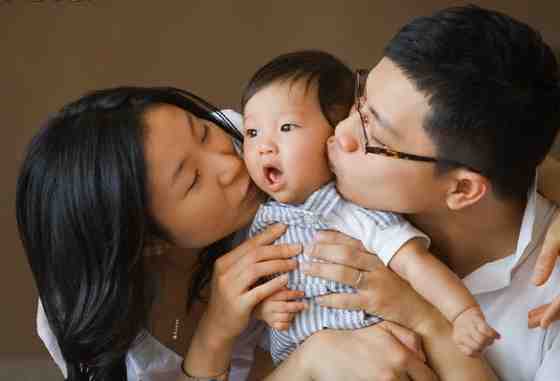China has decided to relax its policy of restricting most couples to having only a single child, state media announces.
In future, families will be allowed two children if one parent is an only child, says the Xinhua news agency.
The one-child policy already exempts rural dwellers and ethnic minorities.
The move comes after this week’s meeting of a key decision-making body of the governing Communist Party. Other reforms include the abolition of “re-education through labor” camps.
The network of camps created half a century ago holds thousands of inmates.
Police panels have the power to sentence offenders to years in camps without a trial.
China’s leaders have previously said they wanted to reform the system.
The decision to do away with the camps was “part of efforts to improve human rights and judicial practices”, Xinhua said.
Most of these changes have already been tested in parts of the country.
Officials announce their plans well in advance to gain the consensus they need.
The Third Plenum of the Communist Party under President Xi Jinping, who took power last year, also announced plans for economic reform.

Traditionally reforms are expected from the Third Plenum, because new leaders are seen as having had time to consolidate power.
On Tuesday, when the meeting ended, China’s leaders promised the free market would play a bigger role, and farmers would have greater property rights over their land.
State firms will be required to pay larger dividends to the government, while private firms will be given a greater role in the economy.
There will be greater liberalization in both interest rates and the free convertibility of the yuan. More overseas investment will be allowed.
There will also be an increase in the number of smaller banks and financial institutions funded by private capital.
Other reforms announced on Friday include a reduction in the number of crimes subject to the death penalty.
The one-child policy would be “adjusted and improved step by step to promote <<long-term balanced development of the population in China>>”, Xinhua said, quoting a Communist Party statement released on Friday.
China introduced its one-child policy at the end of the 1970s to curb rapid population growth.
It has on the whole been strictly enforced, though some exceptions already exist, including for ethnic minorities.
In some cities, both parents must be only children in order to be allowed to have a second child.
In the countryside, families are allowed to have two children if the first is a girl.
Rights groups say the law has meant some women being coerced into abortions, which Beijing denies.
The traditional preference for boys has also created a gender imbalance as some couples opt for sex-selective abortions.
By the end of the decade, demographers say China will have 24 million “leftover men” who, because of China’s gender imbalance, will not be able to find a wife.
Most of the elderly in China are still cared for by relatives, and only children from single-child parents face what is known as the 4-2-1 phenomenon.
When the child reaches working age, he or she could have to care for two parents and four grandparents in retirement.
After decades of population growth, China’s working-age population has recently begun to shrink.
By 2050, more than a quarter of China’s population will be over 65.
[youtube sjsi55LMmPg 650]
